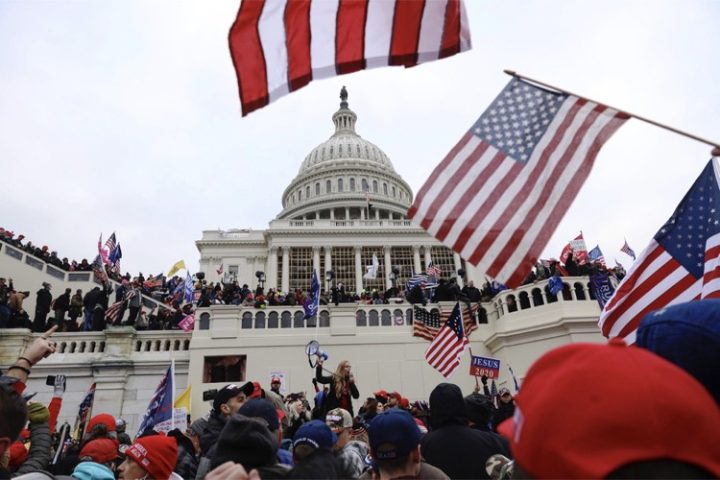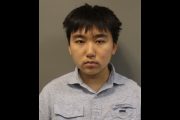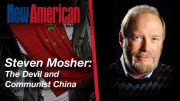
A journalist who covered the January 6 riot at the U.S. Capitol is now being threatened with prosecution under federal racketeering laws, possibly in an attempt to quash his investigation into certain federal agencies’ involvement in the events of that day.
Steve Baker, known to his many social-media followers as the Pragmatic Constitutionalist, went to Washington on January 6, video camera in hand, to record events related to Congress’ certification of the 2020 presidential vote, including then-President Donald Trump’s pre-certification rally and the subsequent protest outside — and ultimately inside — the Capitol.
After the Capitol riot had concluded, Baker was contacted by WUSA-TV, the D.C. CBS affiliate, which interviewed him and broadcast portions of the video he had recorded. His video was later shown on national outlets.
In mid-September, he got “a call from an FBI agent asking me if I would voluntarily come in for an interview,” Baker told The New American. When he arrived for the interview, he learned that it had to be postponed because “there’s apparently a statute in the code of federal regulations which prevents investigative agencies from talking to members of the press without express written permission of the attorney general’s office.”
About a month later, after the FBI got that permission, they interviewed Baker, having given him written assurance that nothing he said could be used against him in legal proceedings as long as he didn’t perjure himself (see his interview with The New American below).
“Their questions were largely centered around” what I did on January 6, Baker recounted. “They were particularly trying to get me to admit that I … willfully entered a restricted federal building.”
Baker said he told them “over and over and over again” that “no, I never pressed so long as the resistance [from the police] was taking place, but there was a moment in time when it was obvious the police were told to stand down, the doors were open, and people began to move in, and it wasn’t until after several hundred people were already in the building that I actually moved into the Capitol building myself.”
According to Baker, the agents told him he would likely be charged with unlawfully entering a restricted federal space, which he called a “glorified trespassing charge,” and with “parading,” i.e., demonstrating inside the Capitol — and they thanked him for not participating in any violence or property destruction.
Just a few days before Thanksgiving, Baker learned that, on top of the trespassing and parading charges, he was going to be charged under a statute banning “interstate or foreign travel or transportation in aid of racketeering enterprises,” which carries a minimum five-year prison sentence. The government’s reasoning, Baker explained, is that “I willfully crossed state lines, entered the building, and performed illegal activities for which I am profiting from the sale of my videos to various news agencies.”
Baker believes the government is threatening him with prosecution because of “some of the things I have written, particularly some of my own personal investigations into various government agencies’ participation … in the days leading up to January 6 as well as on that particular day.” In addition to the FBI, whose involvement has already been widely reported, Baker thinks — and apparently has evidence to back up this assertion — that Army Special Forces troops and U.S. Marshals were covertly among those who entered the Capitol.
Baker has good reason to believe the government is trying to intimidate him. He claims he offered to give the FBI his “raw videos” from January 6, but that didn’t satisfy the G-men.
“They’re now wanting everything in my devices,” he said, “so I have a feeling that they’re looking for my confidential sources and that they’re wanting to know what I know and scare the bejesus out of me with the interstate racketeering charge to shut me up.”
Although he expects the government to try to plea-bargain him down to lesser penalties, Baker says he plans to fight the charges. “There’s no way in you-know-where that I’m going to plead guilty to interstate racketeering or parading because I didn’t do either one,” he declared.
“This is a chilling action, especially on the smaller voices like my own,” he said. “It’s frightening, to say the least.”



